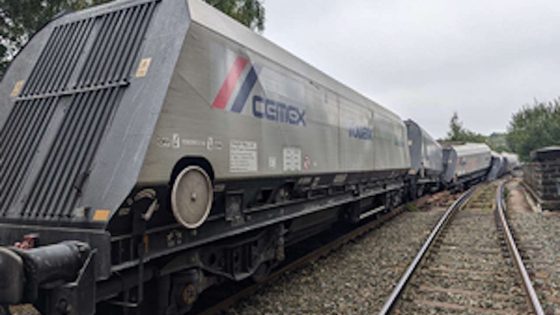Warrenpoint Harbour £80k fine: loading shovel fatality lessons for engineers
Reviewed by Joe Ashwell

First reported on The Construction Index
30 Second Briefing
Warrenpoint Harbour Authority has been fined £80,000 at Newry Crown Court after 58-year-old employee Kevin McGeough was fatally struck and run over by a 20-tonne Volvo loading shovel at Berth 1 in July 2019. McGeough had been power washing in the dockyard close to the travel route of two large loading shovels transferring wood chip 150 metres across the berth, with one machine carrying about 2 tonnes in a 1.69-metre-high bucket at the time. Investigators found no clearly identified, segregated or physically protected pedestrian routes, exposing workers to uncontrolled vehicle movements.
Technical Brief
- Failure mechanism centred on uncontrolled interaction between 20‑tonne Volvo shovel and unsegregated pedestrian work area.
- Joint HSENI and PSNI investigation treated the incident as both a workplace transport failure and potential criminal matter.
- Investigators specifically cited absence of clearly marked, physically protected pedestrian walkways within Berth 1 operations zone.
- Workplace transport risk assessment was deemed inadequate, with no effective system to separate vehicles and pedestrians.
- HSENI inspector stressed that effective vehicle–pedestrian controls can be simple, relying on barriers, markings and signage.
- Court outcome followed Warrenpoint Harbour Authority pleading guilty to two distinct health and safety offences.
Our Take
Within our Hazards coverage, Northern Ireland appears infrequently, so the Warrenpoint Harbour case will likely be treated by local operators as a reference point for HSENI’s expectations on mobile plant risk assessment and segregation in ports and bulk terminals.
The combination of a 20‑tonne loader and relatively light wood chip highlights a recurring pattern in our safety-tagged items: low-density bulk materials can encourage higher travel speeds and more frequent cycles, which tends to increase exposure time for pedestrians and spotters unless traffic management is very tightly controlled.
With 27 Failure/Safety-tagged pieces in our database, this is one of several where the enforcement action comes years after the incident, signalling to UK operators that documentation and training records for mobile equipment and loading operations may need to be retained and auditable over much longer periods than day‑to‑day practice assumes.
Prepared by collating external sources, AI-assisted tools, and Geomechanics.io’s proprietary mining database, then reviewed for technical accuracy & edited by our geotechnical team.
Related Articles
Related Industries & Products
Mining
Geotechnical software solutions for mining operations including CMRR analysis, hydrogeological testing, and data management.
CMRR-io
Streamline coal mine roof stability assessments with our cloud-based CMRR software featuring automated calculations, multi-scenario analysis, and collaborative workflows.
HYDROGEO-io
Comprehensive hydrogeological testing platform for managing, analysing, and reporting on packer tests, lugeon values, and hydraulic conductivity assessments.
GEODB-io
Centralised geotechnical data management solution for storing, accessing, and analysing all your site investigation and material testing data.


